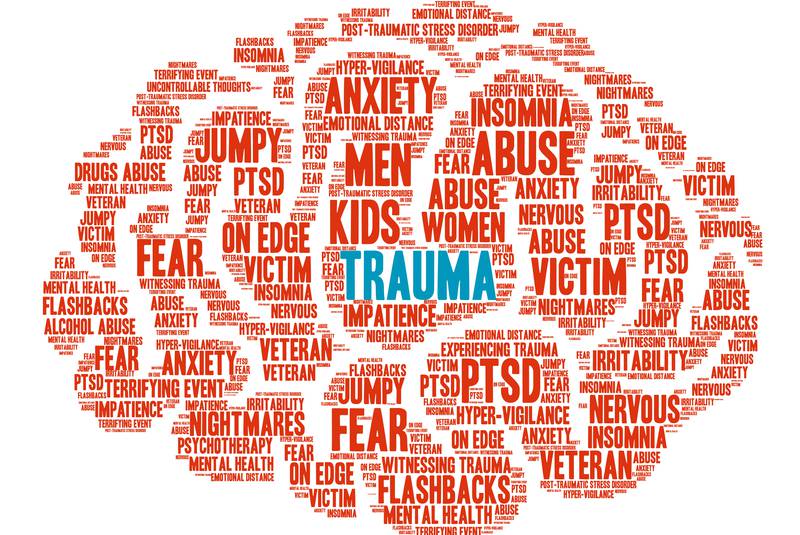Big “T” trauma includes events that a person perceives as life-threatening: combat; crimes such as rape, kidnapping, and assault; and natural disasters such as earthquakes, tornadoes, fires, and floods. These events are so stressful they can overwhelm our ordinary capacity to cope. They result in intense fear, extreme feelings of helplessness, and a crushing loss of control. The symptoms of PTSD span two classes of simultaneous, and diametrically opposed, behaviors. In one type, the traumatized person cannot get away from his trauma: He is forced to relive the original event through intrusive symptoms such as flashbacks, nightmares, panic attacks, and obsessive thoughts. In the other, he can’t get near it: He is compelled to insulate himself from reminders of the trauma through avoidance symptoms such as social isolation, emotional numbing, and substance abuse. Trauma victims also have physiological reactions, such as insomnia, hyper-vigilance, and the tendency to be easily startled by any reminder of the event, such as a particular sound or touch.
Small “t” trauma, on the other hand, occurs in the innocuous but upsetting ting experiences that daily life sends our way. It can result in some of the same feelings as big “T” trauma and have far-reaching consequences.
One client I worked with overheard a girl he liked say to a friend she didn’t think he was very cute and wouldn’t go out with him unless he was “10,000 times cuter.” My client was very handsome but because of that small “t” trauma he never could see his own good looks.
This is the type of experience that children have while growing up. But these types of experiences, just like big “T” trauma, can take up residence in the mind and govern our behavior for decades. Although less dramatic experiences like these do not meet the clinical definition of trauma, they certainly meet the dictionary definition: “an emotional shock that creates substantial and lasting psychological damage; something that severely jars the mind or emotions.”
The problem many trauma victims face is that the upsetting experience from their past (including the feelings, beliefs, physical sensations, and behaviors) is “stuck” in their nervous system. Like a puppet master, this old experience governs the person’s reactions to present-day situations.

